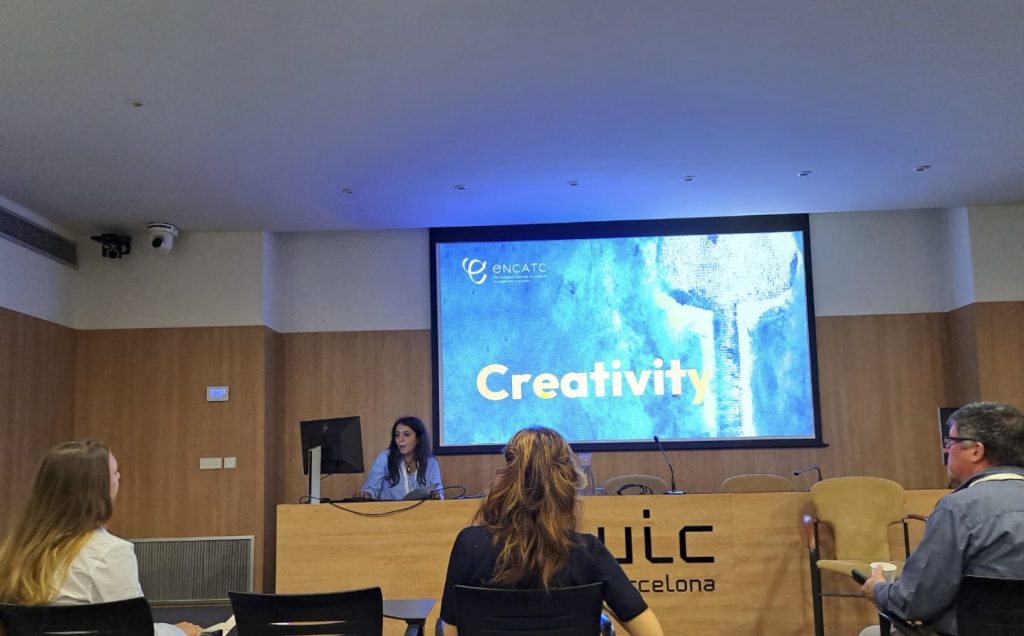The PICC Course was presented at the annual ENCATC Congress in Barcelona on September 25, 2025. Angela Di Benedetto, CROP Project Officer, shared the initiative’s outcomes and results with an international audience of cultural and creative professionals.
The presentation generated interest and discussion among attendees. The audience engaged with the PICC approach, which is based on three core principles: “creativity as a method,” “collaboration as infrastructure,” and “impact as a criterion.” Feedback from participants was positive, and several individuals expressed interest in the possibility of a future edition of the course. The discussion confirmed that the PICC learning model addresses a tangible need for practical and impact-oriented training within the sector.
During the presentation, Angela Di Benedetto noted that without a dedicated marketing budget, the PICC program received over 100 applications for 30 available places. This demonstrated a clear demand for the course’s content. She highlighted key metrics, including over 200 hours of instruction and mentoring, participation from students of 14 different nationalities, and the involvement of guest speakers from diverse fields such as architecture, marketing, and artificial intelligence.
The presentation also showcased four real-world projects developed by students in collaboration with local communities. This was presented as evidence that the course’s success is measured by the tangible value created and the impact on real-world challenges.
The PICC presentation took place within a broader, high-level discussion on the future of cultural policy and management. The conference’s discourse was enriched by the contributions of several distinguished guests. Among them was Ernesto Ottone R., Assistant Director-General for Culture at UNESCO, who delivered a keynote speech addressing the pressing question: “What’s the role of Cultural policy and management in the current geostrategic and technological crisis?” His insights provided a significant framework for understanding the global relevance of projects like PICC, which aim to equip cultural professionals with the skills needed to navigate a complex and rapidly changing world.
The positive reception at the ENCATC Congress confirms the relevance of the PICC project in today’s landscape. It demonstrates a clear interest in educational models that go beyond traditional theory to focus on practical, collaborative, and impact-driven outcomes. The feedback and expressions of interest in a future course edition suggest a strong demand for continued innovation in creative and cultural education.
The event served not only as a platform to share the project’s successes but also as an opportunity for valuable networking and a call to action. It sets the stage for future collaboration and the potential to expand the PICC model, building on the foundation of quality and credibility established during its first run.

